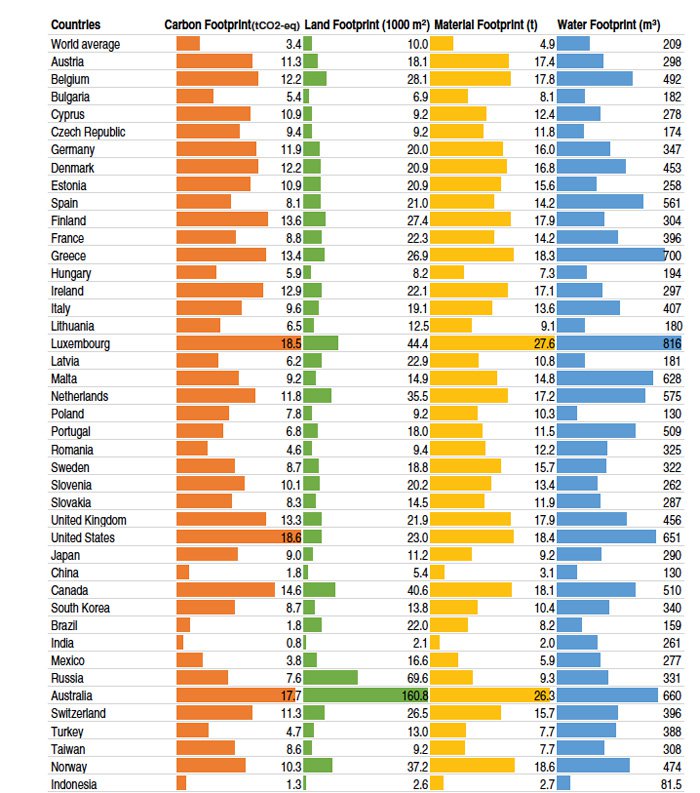We might think that most of the carbon emission come from the industrial sector and livestock, but a new study suggests that the real environmental problem is represented by the things we buy. In order to understand what is really driving the impact on our planet we have to look past the obvious primary factors and realize whose needs those things are servicing. Keeping this in mind, researchers arrived to the conclusion that household consumers are (by far) the biggest accountable for this crisis.
We often look at charts that only take into account nation-focused analyses of environmental impact. So, it would be much better if we would start to take responsibilities and not blaming individual countries for the state of the planet. "If you look at China’s per capita consumption-based (environmental) footprint, it is small" researcher Diana Ivanova from the Norwegian University of Science and Technology said. "They produce a lot of products but they export them. It’s different if you put the responsibility for those impacts on the consumer, as opposed to the producer".
During the study, published in the Journal of Industrial Ecology, the Norwegian researchers analyzed the environmental impact of consumers across 43 countries and five rest-of-the-world regions. They measured the 'secondary impacts' (the environmental impact of our culture of constantly producing and consuming goods) and they could see that consumers resulted to be responsible for more than 60% of the world’s greenhouse gas emissions, and up to 80% of global water use.

"We all like to put the blame on someone else, the government, or businesses" said Ivanova. "But between 60–80 per cent of the impacts on the planet come from household consumption. If we change our consumption habits, this would have a drastic effect on our environmental footprint as well". The researchers were also able to find a very specific and quite self-evident pattern: the richer a country is, the more its inhabitants consume, and the greater each person’s impact on the planet is. Food in particular plays a very essential role in this process. Rich nations, in particular, eat more meat and consume large amounts of dairy products and processed food, which have a huge impact on land and water resources.
In this analysis, the US is the worst performer when it comes to per capita greenhouse gas emissions, with a carbon footprint of 18.6 tonnes CO2 equivalent. Luxembourg is second with 18.5 tonnes, followed by Australia with 17.7 tonnes. On the contrary, China’s per capita carbon footprint is just 1.8 tonnes CO2 and the global average is 3.4 tonnes. Researchers hope that this clearer picture of how consumer behavior contributes to environmental impact will push each of us to make positive changes in our personal approach to consumption, reaching a more sustainable level.
"Households have a relatively large degree of control over their consumption, but they often lack accurate and actionable information on how to improve their own environmental performance" said Ivanova. "Any activity where we have a choice of buying a product or using a service, the service will have much less impact".
Source: Gemini. Images: Gemini, Shutterstock

Share your thoughts and join the technology debate!
Be the first to comment